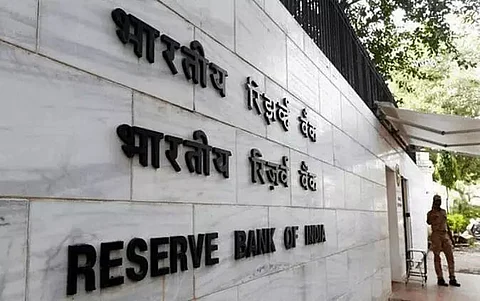
- Home
- Live Blog
- Breaking News
- Top Headlines
- Cities
- NE News
- Sentinel Media
- Sports
- Education
- Jobs

The move by the Reserve Bank of India (RBI) to tame sticky inflation by raising key lending rates is set to make borrowing costlier for existing and new borrowers. Banks will eventually be forced to pass on the increasing cost borrowing from RBI to the end consumers, but they are not expected to dampen the festival spirit by effecting it before the festival season is over. Home loans, car and other vehicles loans, education loans are set to rise again due to increase in either the amount of Equated Monthly Instalment (EMI) or increase in tenures of EMI. This means that existing and new borrowers, who are already stressed by price hike in essential and other commodities, high fuel cost, previous hikes in interest rates, will have to cut down all sundry expenses to increase savings for repaying the loans or to plan borrowing for a dream house, car, two-wheelers, or to fund education of children. If the banks pass on the increase in interest rates immediately, many customers will have to curtail their dreams, which in turn will impact the sentiment-driven real estate or automobile industry. In its Monetary Policy Report for September, the RBI has presented a bleak outlook of low global growth and high global inflation. These "global stagflationary impulses can impact domestic growth and inflation through multiple channels" such as lower external demand dragging down export demand and overall domestic demand and growth, higher global commodity prices increasing domestic inflation and higher global inflation and global interest rates impact capital flows, put downward pressures on the domestic currency and lead to higher imported inflation, cautions the RBI in its report. The RBI Governor's statement explains the rationale behind this hawkish monetary policy and states that consumer price inflation remains elevated and above the upper tolerance band of the target due to large adverse supply shocks, some firming up of domestic demand, and the spillovers from global financial markets. "The inflation trajectory remains clouded with uncertainties arising from continuing geopolitical tensions and nervous global financial market sentiments," adds the RBI Governor Shaktikanta Das referring to the Russia-Ukraine conflict. He points out that during the current financial year the US dollar has appreciated by 14.5 %, causing turmoil in currency markets globally while the Indian rupee (INR), on the other hand, has depreciated by 7.4 % against the US dollar during this period but still fared better that many currencies. The rising dollar and falling rupee is an area of concern for India as the country imports 80% of its crude oil and resultant higher prices of petrol and diesel fuel more domestic retail inflation on account of resultant rise in commodity prices. If prices of the Indian crude oil basket soar again towards 100 dollars or more per barrel mark, retail customers will have to brace for worse financial shocks. The RBI Governor cautions that there are also upside risks to food prices and highlights that cereal price pressure is spreading from wheat to rice due to the likely lower kharif paddy production. The lower sowing for kharif pulses could also cause some pressures. The delayed withdrawal of monsoon and intense rain spells in various regions have already started to impact vegetable prices, especially tomatoes. These risks to food inflation could have an adverse impact on inflation expectations, warns the central bank Governor, which presents a gloomy picture of coming days. The RBI's intervention in the foreign exchange market of selling dollars to defend rupee against US dollar had led to depletion of its foreign exchange reserve from all-time high of 642.45 billion dollars as on September 3, 2021, to 537.52 billion dollars as on September 23, 2022. The RBI Governor, however, reassures about the adequacy of the country's foreign exchange reserve by stating that the aspect of adequacy of forex reserves is always kept in mind, which is expected to put at rest speculation of the reserves depleting to an alarming level and triggering a crisis akin to that of Sri Lanka. It is reassuring to know from the RBI Governor's statement that "despite unsettling global environment, the Indian economy continues to be resilient" and that the country has withstood the shocks from COVID-19 and the conflict in Ukraine. Moderating retail fuel prices through reduction of taxes can provide a cushion against consumer price inflation but this will require the Central and the state governments to cut down unproductive expenditures on freebies like free rice etc., cash incentives to low-income households so that there is no pressure on the government to mop up revenue to meet such expenditures by higher taxations on petroleum products. Sticky inflation erases reliefs sought to be provided through such freebies and unlocking the huge fund spent on freebies can be used to increase farm production and improve market support to augment household savings.